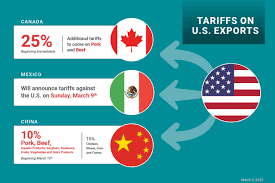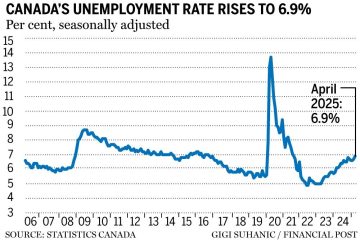Understanding Canada China Tariffs and Their Impacts

The Importance of Canada China Tariffs
The ongoing trade relationship between Canada and China has been under significant scrutiny, particularly regarding tariffs. As Canada navigates its economic goals amidst rising geopolitical tensions, understanding the implications of tariffs on this bilateral trade is crucial for businesses and consumers alike.
Recent Developments in Canada China Tariffs
In recent months, tensions between Canada and China have escalated, particularly following Canada’s decision to impose tariffs on a number of Chinese imports to protect domestic industries. Reports indicate that Canada has targeted specific goods, including steel and aluminum products, citing concerns over unfair trade practices and national security. In retaliation, China has threatened to impose its own tariffs on Canadian exports, further straining relations.
According to a report from Global Affairs Canada, bilateral trade reached approximately $85 billion in 2022, with China being one of Canada’s largest trading partners. This substantial trade flow makes the imposition of tariffs particularly impactful, as shifts in tariffs could lead to increased costs for consumers, disruptions in supply chains, and adversely affect Canadian businesses relying on imports from China.
The Economic Impact
The tariffs imposed have not only economic implications but also broader effects on the Canadian labor market. Industries heavily reliant on imports from China, such as construction and manufacturing, are expected to face increased operational costs, which may lead to price hikes and potential job losses. Analysts suggest that such outcomes could trigger a recessionary period if consumer spending declines significantly.
Looking Ahead: The Future of Canada China Relations
Going forward, experts suggest that Canada must strategically assess its trade relationship with China, considering both the economic benefits and security risks. Discussions surrounding tariff policies are expected to continue throughout 2024, with trade negotiations being a critical focal point in diplomatic dialogues. The government may seek to foster stronger relations with other trading partners to offset the potential losses incurred from strained ties with China.
Conclusion
With ongoing discussions around tariffs dominating the trade agenda, it is essential for Canadians to stay informed about how these decisions affect them. The evolving landscape of Canada China tariffs will play a significant role in shaping the country’s economic future, necessitating vigilance and adaptability from businesses and policymakers alike. As trade relations continue to evolve, understanding the long-term implications of these tariffs will be vital for navigating the complex global marketplace.




